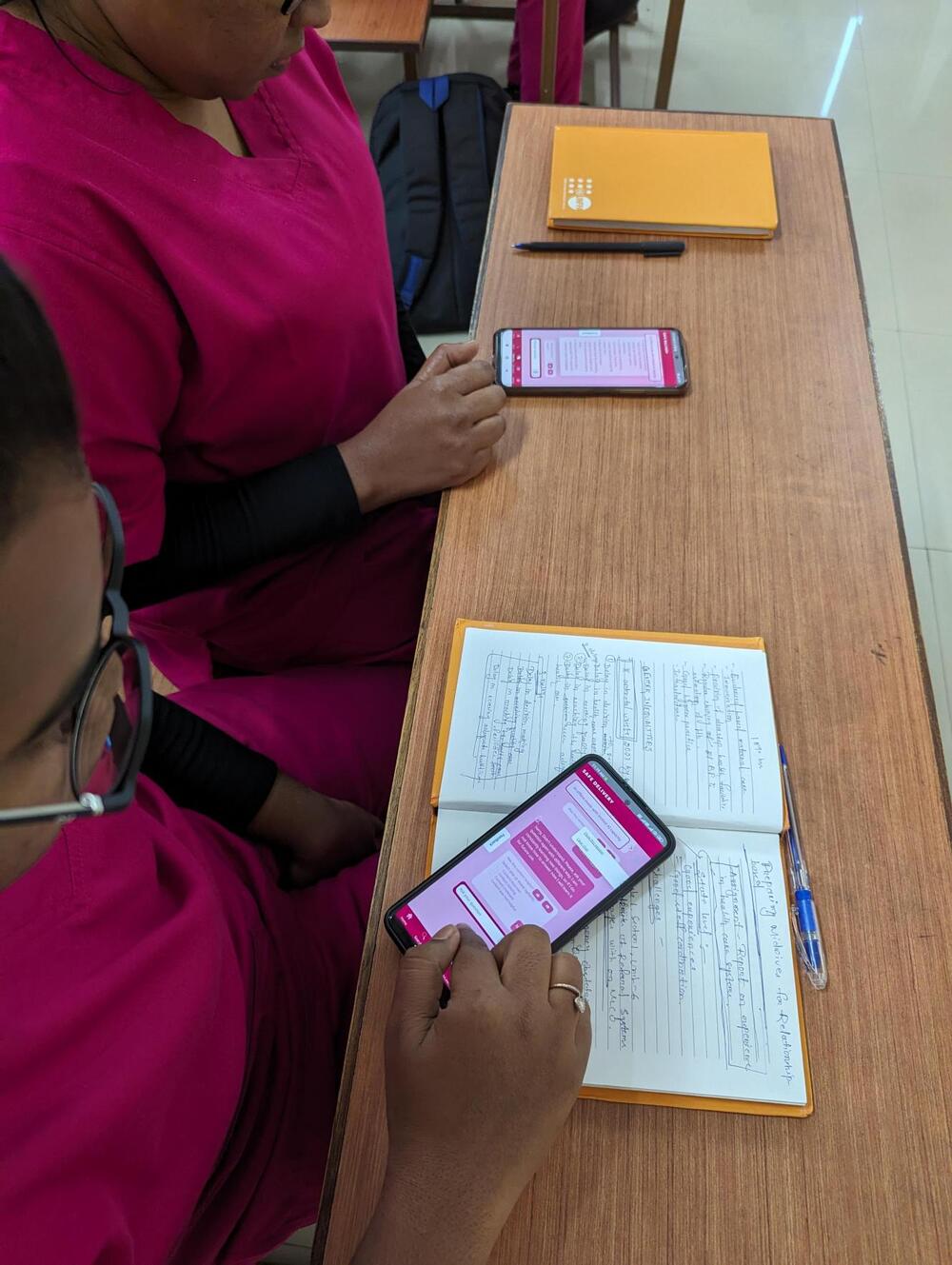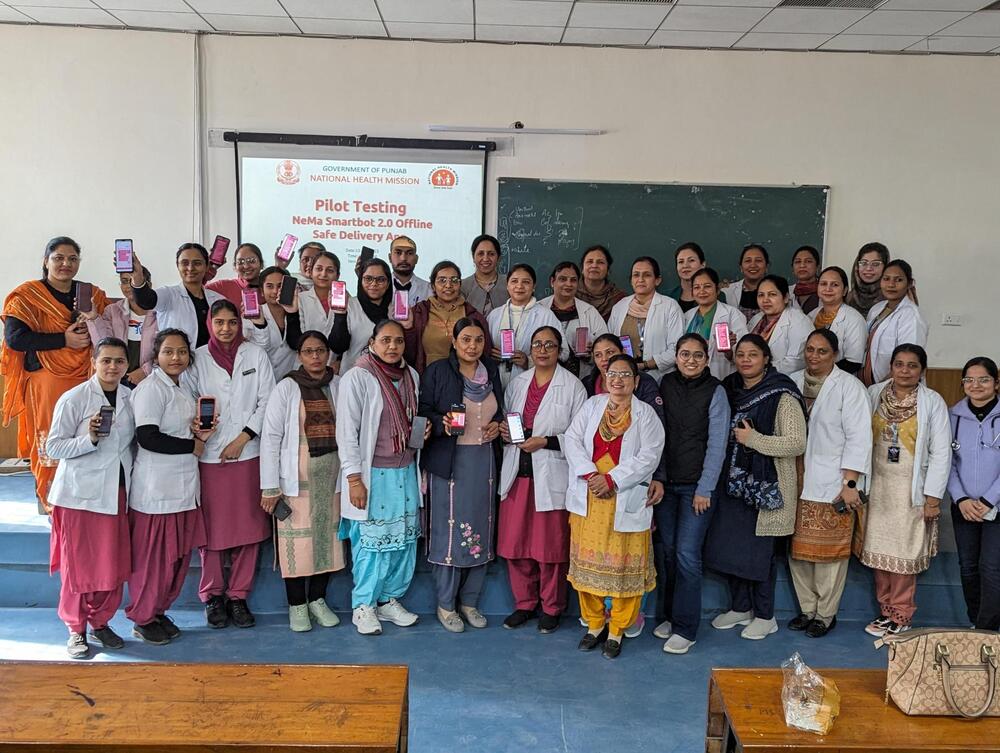News
“It’s a burning issue”: How one midwife is harnessing new technology to support mothers and newborns in India
- 25 August 2024
News
LUDHIANA, India/UNITED NATIONS, New York – As a midwife, Lovepreet Saini is always on the lookout for new ways to help mothers.
While studying for her bachelor’s degree in nursing, Ms. Saini developed a special interest in maternal and newborn health. “Even now, it’s a burning issue for governments to deal with, as a healthy baby and a healthy mother are key foundations for a developed country.”
After more than a decade spent working closely with mothers in labour wards, Ms. Saini qualified as a midwifery educator in early 2024 – a process made more arduous by her busy schedule at the hospital. Thankfully, a digital tool designed specifically for midwives helped her to reach her goal.
A new way to learn

In 2015, the Maternity Foundation, an international NGO focused on maternal and newborn health, launched the Safe Delivery app. The platform is a free training tool for midwives and other health-care providers in low-resource settings, offering animated videos, descriptions of practical procedures and other features to guide users on how to handle childbirth and related complications.
For Ms. Saini, whose packed schedule meant she struggled to find the time to study, the app marked a turning point. “The videos and short formats helped me a lot to pass my exam,” she shares. “It covers pre-conception to postnatal care, including modern methods of contraception.”
With the support of UNFPA, the United Nations sexual and reproductive health agency, and other key partners, the app has now reached 435,000 people across more than 70 countries.
In Ludhiana, a bustling city in the north Indian state of Punjab where Ms. Saini works, accessing accurate information on maternal health is particularly important: A large migrant population means that many women experience barriers to care due to a lack of resources and knowledge on how to navigate the health-care system, while certain cultural beliefs can often lead to the spread of misinformation.
“They have more issues with maternal and newborn health,” explained Ms. Saini. “And they don’t have enough money to get treatment from the private hospitals.” Tools like the Safe Delivery App make it easier for midwives to learn and disseminate the facts so that all women, regardless of status, can access quality maternity care.
The platform also provides training on an aspect of maternal health that is often overlooked – perinatal mental health, which Ms. Saini believes is critical to the overall health of mother and child.
Overcoming challenges in remote locations

And there’s another benefit to the Safe Delivery App – it functions offline, even in remote locations. Ms. Saini described how this helps her colleagues to deliver quality care where it is needed the most: “I remember when I went to Gujarat, it was a tribal and remote area. I recommended this app to the community health officer who was working there and she was astonished to see that such apps are available – she became very happy.”
To provide even easier access to information in real time, a new AI-powered conversational smartbot called NeMa, developed by Neuvo Inc. Global, is currently being piloted in India. The initiative was facilitated by UNFPA and funded by Organon, a global health-care company focused on women’s health.
With almost 300,000 women and 2.4 million newborns losing their lives due to pregnancy complications every year, there is an urgent need to find solutions. When midwives are empowered to improve their knowledge and skills, they can ensure that mothers in some of the world’s most fragile settings can give birth safely.
Of all the happy moments Ms. Saini has experienced in the labour ward, one stands out as her favourite: As she made the rounds of the collaborative care unit one evening, a woman who had been admitted with contractions observed her kindness with another expecting mother. As she was preparing to finish her shift, Ms. Saini was approached by the woman with a special request: she wanted her to assist her with her own delivery.
“I was done with my duty, but I stayed for the night so that I could help that mother to deliver. Afterwards, she told me that it was only because of me that she was able to deliver a healthy baby,” said Ms. Saini.
“That is one of the unforgettable moments of my profession, and I will always remember it. She even had the same name as me – I am Lovepreet and she was also Lovepreet.”